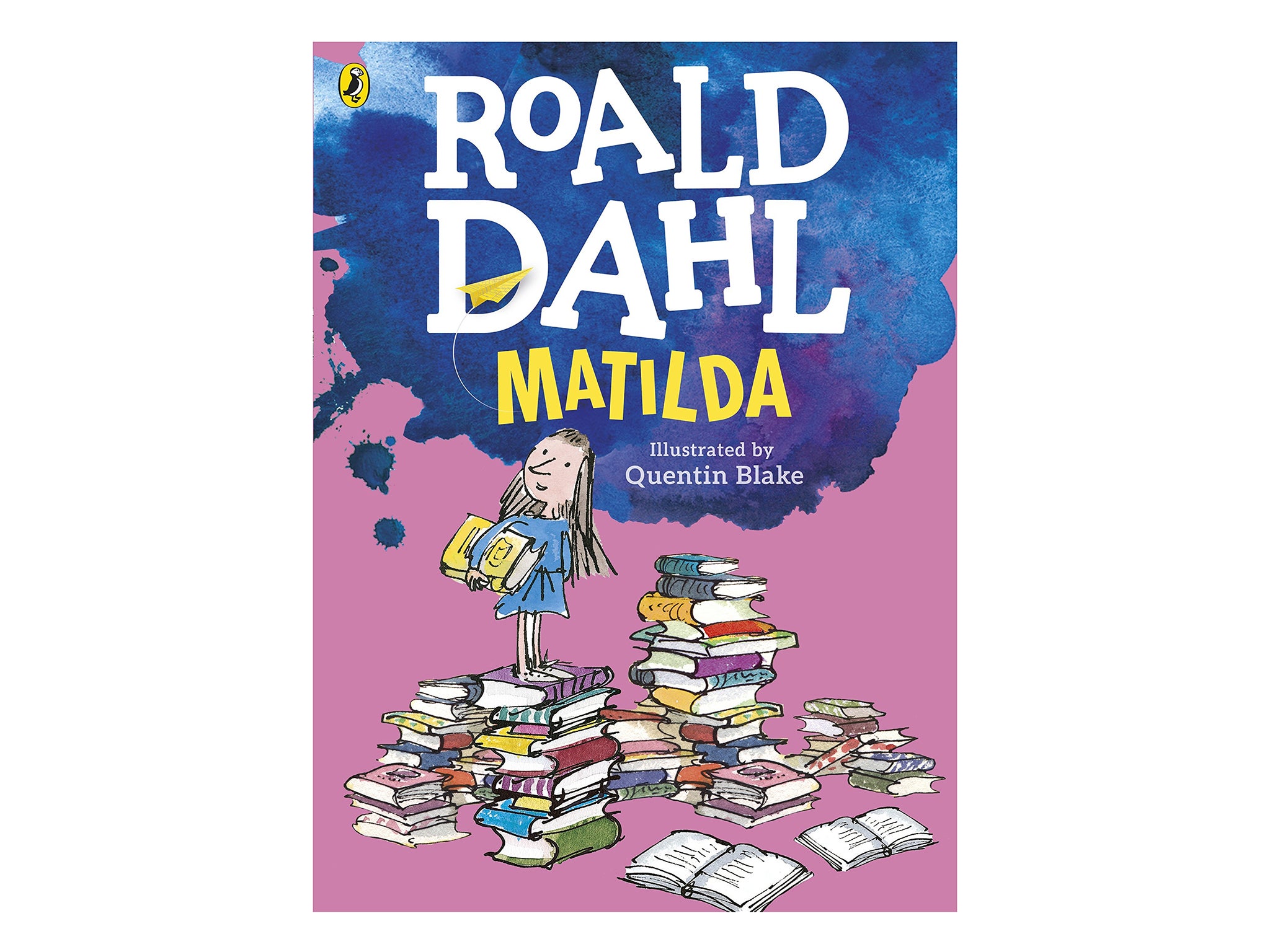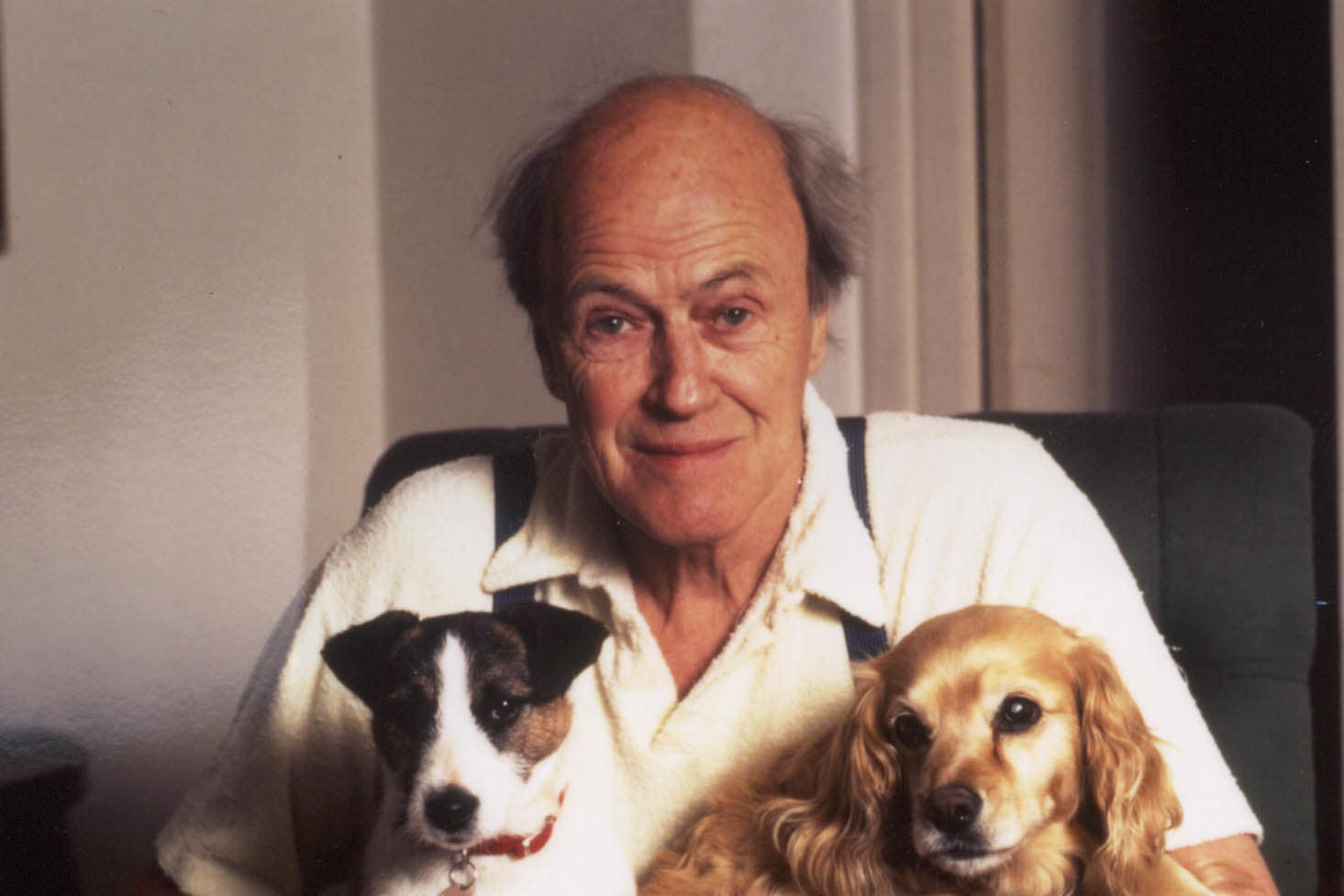The 6 most glaring edits to Roald Dahl’s books by publisher Puffin
Author’s children’s stories have been rewritten to remove language deemed problematic
In Roald Dahl’s famous children’s book, James and the Giant Peach, the Cloud-Men have become Cloud-People. In The Witches, there are no longer any old hags – only old crows. These are just two of the hundreds of changes that have been made to the author’s stories by publisher Puffin.
Dahl’s books are being rewritten to remove language considered offensive, with the word “fat” being removed in every instance, it emerged last week.
Puffin said the rewriting has been done to ensure that the books “can continue to be enjoyed by all today”.
The move has been divisive. Writer Salman Rushdie called it “absurd censorship”, while Philip Pullman said we should let Dahl go “out of print” and read other children’s authors.
Queen Camilla has now weighed into the row, defending the right of writers to express themselves in an extraordinary intervention. Speaking at Clarence House, she urged writers “to remain true to your calling, unimpeded by those who may wish to curb the freedom of your expression or your imagination.”
Last week, The Telegraph published an extensive list of every single change made in the books.
Here are the six most glaring edits unearthed in the newspaper’s investigation…
Rudyard Kipling is swapped out for Jane Austen
The original version of Matilda stated: “She went on olden-day sailing ships with Joseph Conrad. She went to Africa with Ernest Hemingway and to India with Rudyard Kipling.”
And the new edition says: “She went to nineteenth century estates with Jane Austen. She went to Africa with Ernest Hemingway and California with John Steinbeck.”
Both Conrad and Kipling have been accused of racism in reappraisals of their work.

There is certainly nothing wrong with wigs
In The Witches (where witches wear wigs) Dahl had written: “You can’t go round pulling the hair of every lady you meet, even if she is wearing gloves. Just you try it and see what happens.”
Puffin’s new version reads: “Besides, there are plenty of other reasons why women might wear wigs and there is certainly nothing wrong with that.”
Female characters break the glass ceiling
While in Dahl’s original version of The Witches, women were described as being supermarket cashiers or letter-writers for businessmen, in the new edition, women are top scientists or business owners themselves.

Electrocution turns into ejection
In George’s Marvellous Medicine, Dahl had written: “It was exactly as though someone had pushed an electric wire through the underneath of her chair and switched on the current.”
The new version says: “It was as though someone had switched her chair with a fighter-jet seat and pressed the eject button.”
No more fatphobia
A passage in James and the Giant Peach used to say: “Aunt Sponge was terrifically fat,/And tremendously flabby at that./Her tummy and waist/Were as soggy as paste -/It was worse on the place where she sat!”
Now, it reads: “Aunt Sponge was a nasty old brute,/And deserved to be squashed by the fruit!/We all felt a big bump/When we dropped with a thump./We left Aunt Sponge behind us/But you needn’t remind us /That we shouldn’t feel rotten,/For we haven’t forgotten/How spiteful she could be!”
Quentin Blake illustrations are scrubbed out
The words aren’t the only creations removed from Dahl’s books. In some cases, Quentin Blake’s illustrations have got the chop.
Earlier editions of Charlie and the Chocolate Factory include three sketches of Mike Teavee with 18 toy pistols “hanging from belts around his body”, but the guns have been erased, along with this sentence: “Mike Teavee himself had no less than 18 toy pistols of various sizes hanging from belts around his body, and every now and again he would leap up into the air and fire off half a dozen rounds from one or another of these weapons.”
Appearing on Radio 4 on Monday 20 February, Pullman commented: “It doesn’t do anything very much. If it does offend us, let him go out of print.
“That’s what I’d say. Read Phil Earle, SF Said, Frances Hardinge, Michael Morpurgo, Malorie Blackman. Read Mini Grey, Helen Cooper, Jaqueline Wilson, Beverley Naidoo.
“Read all these wonderful authors who are writing today who don’t get as much of a look-in because of the massive commercial gravity of people like Roald Dahl.”
Join our commenting forum
Join thought-provoking conversations, follow other Independent readers and see their replies
Comments


Bookmark popover
Removed from bookmarks